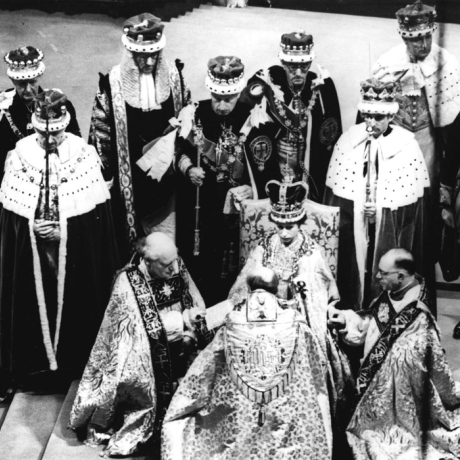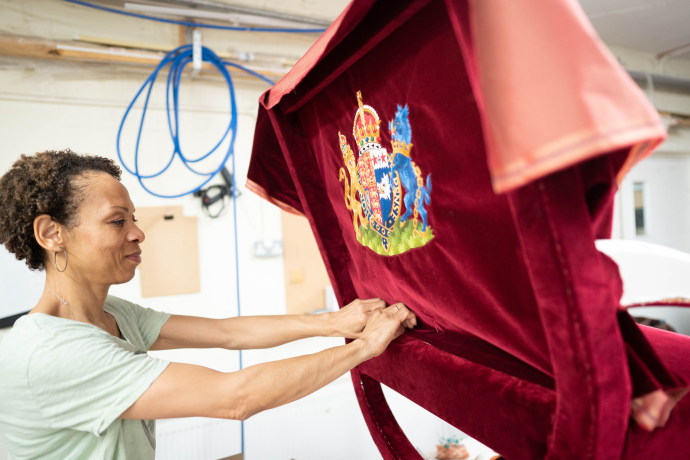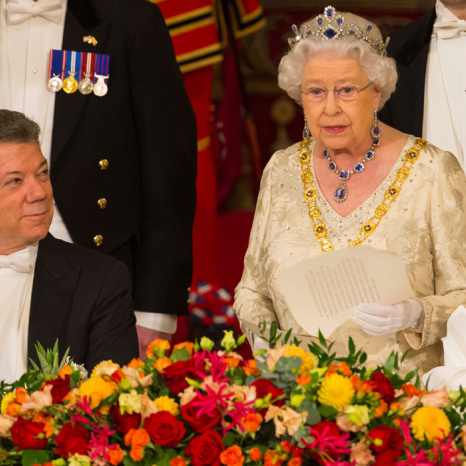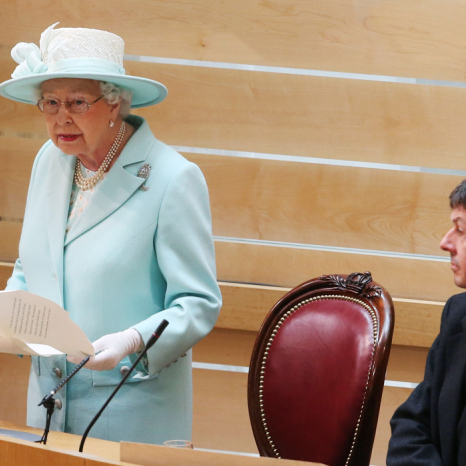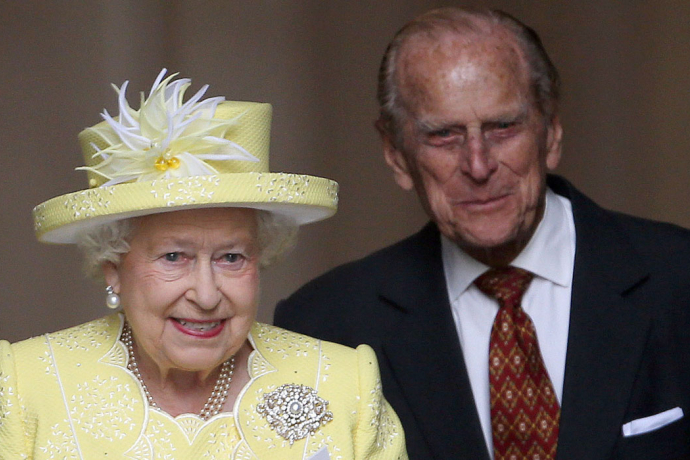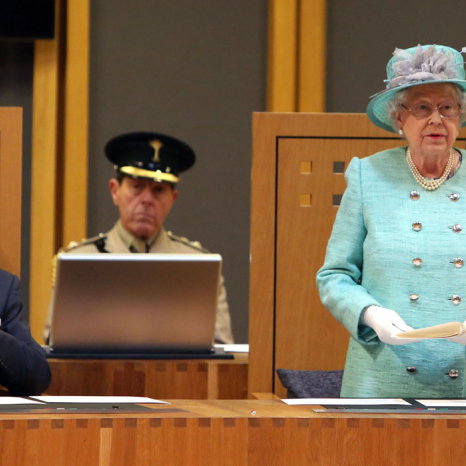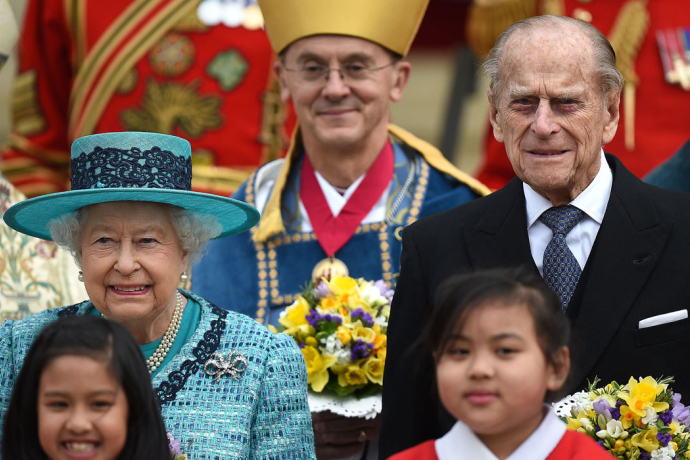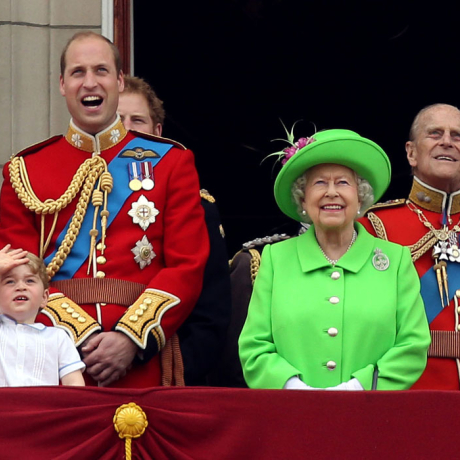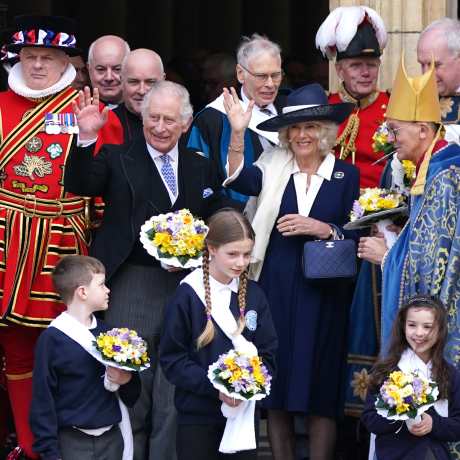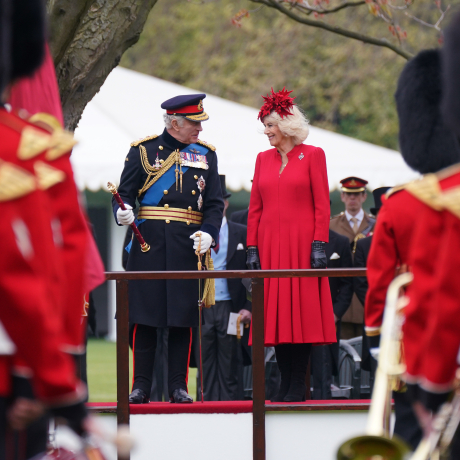The coronation ceremony
The coronation of the new Sovereign follows some months after his or her accession, following a period of mourning and as a result of the enormous amount of preparation required to organise the ceremony.
Present at the Coronation of Queen Elizabeth II were representatives of the Houses of Parliament, Church and State. Prime ministers and leading citizens from the Commonwealth and representatives of other countries also attended.
I shall ever remember this day as the proudest of my life
Queen Victoria on her coronation, 28 June 1838
During the ceremony, the Sovereign takes the coronation oath. The form and wording have varied over the centuries. Queen Elizabeth II undertook to rule according to law, to exercise justice with mercy - promises symbolised by the four swords in the coronation regalia (the Crown Jewels) - and to maintain the Church of England.
Following the oath the Sovereign is then 'anointed, blessed and consecrated' by the Archbishop, whilst the Sovereign is seated in King Edward's chair (made in 1300, and used by every Sovereign since 1626).
After receiving the orb and sceptres, the Archbishop places St Edward's Crown on the Sovereign's head.
Unless decided otherwise, a Queen consort is crowned with the King, in a similar but simpler ceremony. If the new Sovereign is a Queen, her consort is not crowned or anointed at the coronation ceremony. After Queen Elizabeth II was crowned The Duke of Edinburgh was the first, after the archbishops and bishops, to pay homage to her.
The Queen's Coronation took place on 2 June 1953 following her accession on 6 February 1952. In 2013 The Queen celebrated the sixtieth anniversary of her Coronation, marking the occasion with a festival in the garden of Buckingham Palace, hosted by the Royal Warrant Holders Association.
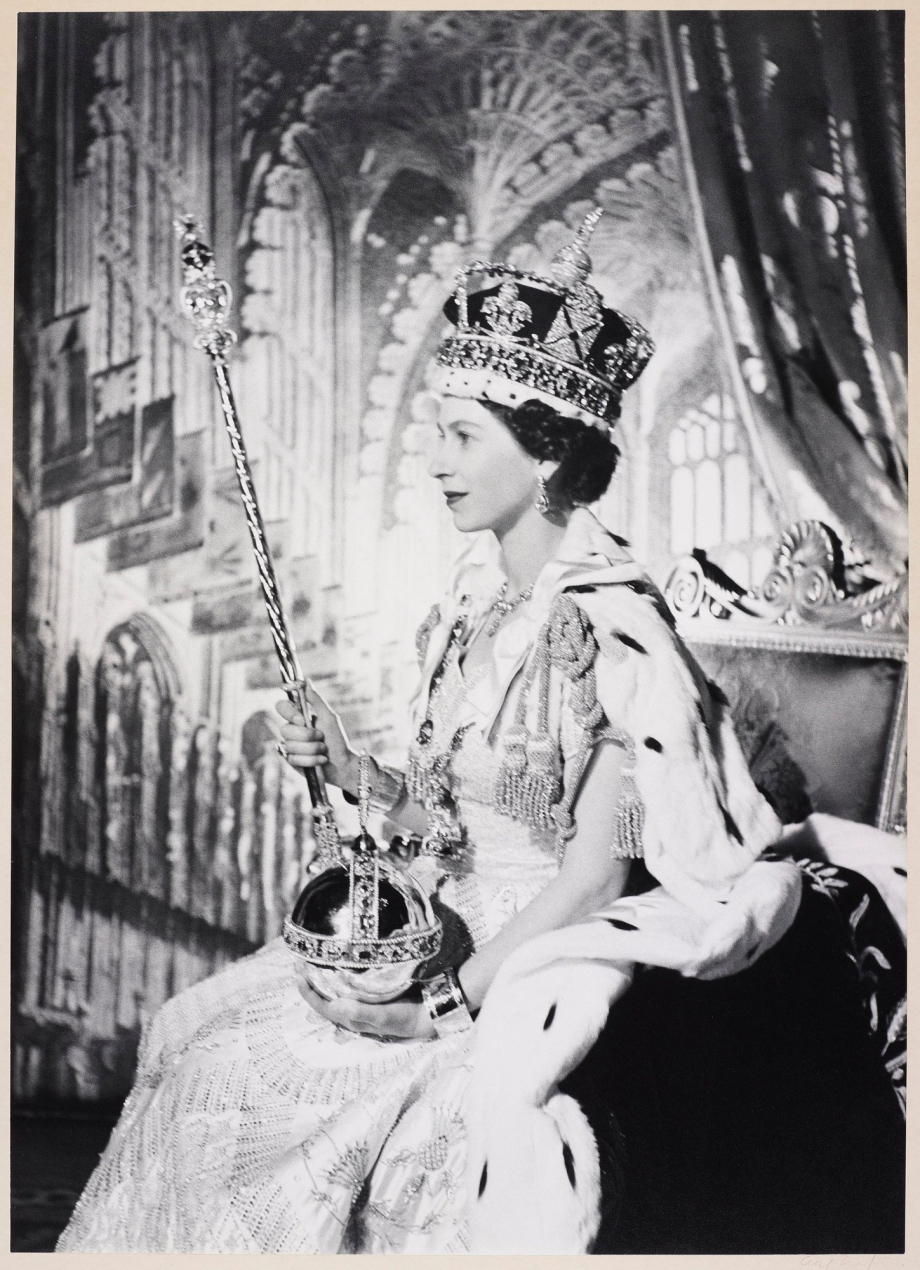
The Queen's Coronation Oath
The Archbishop ministered these questions; and the Queen, having a book in her hands, answered each question severally as follows:
The Archbishop: Will you solemnly promise and swear to govern the Peoples of the United Kingdom of Great Britain and Northern Ireland, Canada, Australia, New Zealand, the Union of South Africa, Pakistan, and Ceylon, and of your Possessions and the other Territories to any of them belonging or pertaining, according to their respective laws and customs?
The Queen: I solemnly promise so to do.
The Archbishop: Will you to your power cause Law and Justice, in Mercy, to be executed in all your judgements?
The Queen: I will.
The Archbishop: Will you to the utmost of your power maintain the Laws of God and the true profession of the Gospel? Will you to the utmost of your power maintain in the United Kingdom the Protestant Reformed Religion established by law? Will you maintain and preserve inviolably the settlement of the Church of England, and the doctrine, worship, discipline, and government thereof, as by law established in England? And will you preserve unto the Bishops and Clergy of England, and to the Churches there committed to their charge, all such rights and privileges, as by law do or shall appertain to them or any of them?
The Queen: I will.

